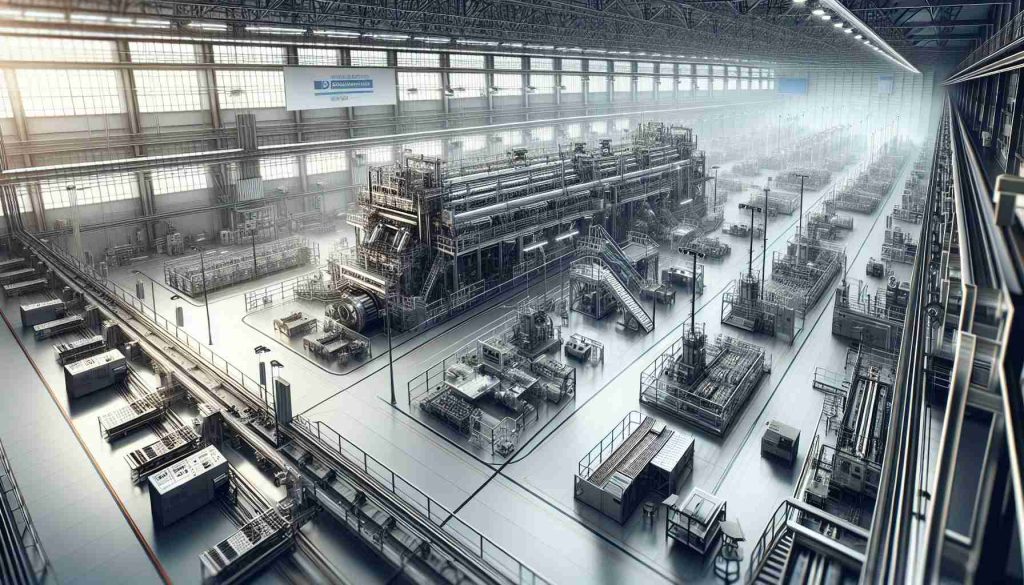Major Negotiations Unfold for Talgo’s Ownership
Talgo’s board of directors is currently in discussions with prominent businessman José Antonio Jainaga, the owner of Sidenor, to potentially acquire a significant stake in the train manufacturer. This move would see a shift from the current majority shareholder, British investment fund Trilantic. Talks have been initiated to explore the possibility of Sidenor obtaining up to 29.9% of the company’s shares, staying below the legal limit of 30% that would trigger a mandatory takeover bid.
Strategic Considerations and Delicate Talks
Following a recent meeting in Madrid where top shareholders of Talgo convened to assess Jainaga’s proposal, details remain undisclosed. The focus remains on safeguarding the interests of the company and its shareholders, as affirmed by Talgo’s management team.
New Players and Government Stance
Apart from Sidenor’s potential entrance, other stakeholders like Torreal and the Oriol family are also looking to divest their holdings. The Spanish government agency SEPI and the Basque government are poised to step in, signaling a shift in ownership structure. Recognizing the significance of preserving local roots and job creation, the Basque Government stands behind Sidenor’s interest in Talgo, which could lead to the relocation of the manufacturer’s headquarters.
Future Prospects and Employee Advocacy
With a substantial order backlog exceeding 4 billion, Talgo faces the imperative to make swift decisions regarding its future trajectory. An infusion of new ownership could pave the way for industrial expansion and increased production capacity, addressing the concerns of both shareholders and employees who emphasize the necessity of a sustainable business plan for the company’s ongoing viability.
Major Ownership Transition Looms for Talgo Manufacturing Plant
Talgo Manufacturing Plant is on the brink of a significant ownership transition, with negotiations underway that could bring about a major shift in its shareholding structure. While the potential involvement of José Antonio Jainaga’s Sidenor has been the focal point of recent discussions, additional factors are emerging that warrant attention.
Key Questions and Answers:
1. What impact could Sidenor’s acquisition have on Talgo’s operations?
If Sidenor acquires a substantial stake in Talgo, it could potentially influence strategic decisions, production processes, and overall business direction. The extent of this impact would depend on the terms of the deal and Sidenor’s future involvement in Talgo’s management.
2. How might the involvement of SEPI and the Basque government affect Talgo’s ownership structure?
The participation of governmental entities like SEPI and the Basque government could introduce additional complexities to the ownership transition. Their stake in Talgo could have regulatory implications and may influence the company’s strategic direction in alignment with governmental objectives.
Challenges and Controversies:
The impending ownership transition at Talgo Manufacturing Plant is not without challenges. Controversies may arise regarding the shift in control from private investors to government-backed entities, potentially triggering discussions on the balance between public interest and business autonomy. Additionally, the restructuring process could face resistance from existing shareholders or industry stakeholders hesitant about the implications of the new ownership landscape.
Advantages and Disadvantages:
On one hand, a change in ownership could inject fresh capital, expertise, and opportunities for Talgo to expand its market presence and innovation capacity. It may also offer stability and a strategic vision aligned with long-term sustainability. However, disadvantages could include conflicts of interest, diverging priorities among stakeholders, and potential disruptions to existing operational structures during the transition phase.
For more insights on the evolution of Talgo Manufacturing Plant’s ownership dynamics, visit official website.








More Stories
Global Banking Giant Records Impressive Profit Growth in Third Quarter
New Millionaire Emerges in Latest Lottery Draw
Exciting Launch of a New Air Route from Paris to Seoul